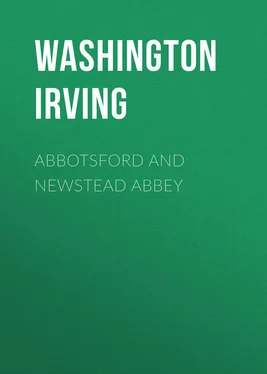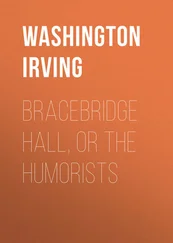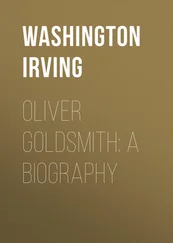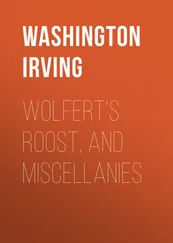Washington Irving - Abbotsford and Newstead Abbey
Здесь есть возможность читать онлайн «Washington Irving - Abbotsford and Newstead Abbey» — ознакомительный отрывок электронной книги совершенно бесплатно, а после прочтения отрывка купить полную версию. В некоторых случаях можно слушать аудио, скачать через торрент в формате fb2 и присутствует краткое содержание. Жанр: foreign_antique, foreign_prose, на английском языке. Описание произведения, (предисловие) а так же отзывы посетителей доступны на портале библиотеки ЛибКат.
- Название:Abbotsford and Newstead Abbey
- Автор:
- Жанр:
- Год:неизвестен
- ISBN:нет данных
- Рейтинг книги:3 / 5. Голосов: 1
-
Избранное:Добавить в избранное
- Отзывы:
-
Ваша оценка:
- 60
- 1
- 2
- 3
- 4
- 5
Abbotsford and Newstead Abbey: краткое содержание, описание и аннотация
Предлагаем к чтению аннотацию, описание, краткое содержание или предисловие (зависит от того, что написал сам автор книги «Abbotsford and Newstead Abbey»). Если вы не нашли необходимую информацию о книге — напишите в комментариях, мы постараемся отыскать её.
Abbotsford and Newstead Abbey — читать онлайн ознакомительный отрывок
Ниже представлен текст книги, разбитый по страницам. Система сохранения места последней прочитанной страницы, позволяет с удобством читать онлайн бесплатно книгу «Abbotsford and Newstead Abbey», без необходимости каждый раз заново искать на чём Вы остановились. Поставьте закладку, и сможете в любой момент перейти на страницу, на которой закончили чтение.
Интервал:
Закладка:
Washington Irving
Abbotsford and Newstead Abbey
ABBOTSFORD
I sit down to perform my promise of giving you an account of a visit made many years since to Abbotsford. I hope, however, that you do not expect much from me, for the travelling notes taken at the time are so scanty and vague, and my memory so extremely fallacious, that I fear I shall disappoint you with the meagreness and crudeness of my details.
Late in the evening of August 29, 1817, I arrived at the ancient little border town of Selkirk, where I put up for the night. I had come down from Edinburgh, partly to visit Melrose Abbey and its vicinity, but chiefly to get sight of the "mighty minstrel of the north." I had a letter of introduction to him from Thomas Campbell, the poet, and had reason to think, from the interest he had taken in some of my earlier scribblings, that a visit from me would not be deemed an intrusion.
On the following morning, after an early breakfast, I set off in a postchaise for the Abbey. On the way thither I stopped at the gate of Abbotsford, and sent the postilion to the house with the letter of introduction and my card, on which I had written that I was on my way to the ruins of Melrose Abbey, and wished to know whether it would be agreeable to Mr. Scott (he had not yet been made a Baronet) to receive a visit from me in the course of the morning.
While the postilion was on his errand, I had time to survey the mansion. It stood some short distance below the road, on the side of a hill sweeping down to the Tweed; and was as yet but a snug gentleman's cottage, with something rural and picturesque in its appearance. The whole front was overrun with evergreens, and immediately above the portal was a great pair of elk horns, branching out from beneath the foliage, and giving the cottage the look of a hunting lodge. The huge baronial pile, to which this modest mansion in a manner gave birth was just emerging into existence; part of the walls, surrounded by scaffolding, already had risen to the height of the cottage, and the courtyard in front was encumbered by masses of hewn stone.
The noise of the chaise had disturbed the quiet of the establishment. Out sallied the warder of the castle, a black greyhound, and, leaping on one of the blocks of stone, began a furious barking. His alarum brought out the whole garrison of dogs:
"Both mongrel, puppy, whelp, and hound,
And curs of low degree;"
all open-mouthed and vociferous. – I should correct my quotation; – not a cur was to be seen on the premises: Scott was too true a sportsman, and had too high a veneration for pure blood, to tolerate a mongrel.
In a little while the "lord of the castle" himself made his appearance. I knew him at once by the descriptions I had read and heard, and the likenesses that had been published of him. He was tall, and of a large and powerful frame. His dress was simple, and almost rustic. An old green shooting-coat, with a dog-whistle at the buttonhole, brown linen pantaloons, stout shoes that tied at the ankles, and a white hat that had evidently seen service. He came limping up the gravel walk, aiding himself by a stout walking-staff, but moving rapidly and with vigor. By his side jogged along a large iron-gray stag-hound of most grave demeanor, who took no part in the clamor of the canine rabble, but seemed to consider himself bound, for the dignity of the house, to give me a courteous reception.
Before Scott had reached the gate he called out in a hearty tone, welcoming me to Abbotsford, and asking news of Campbell. Arrived at the door of the chaise, he grasped me warmly by the hand: "Come, drive down, drive down to the house," said he, "ye're just in time for breakfast, and afterward ye shall see all the wonders of the Abbey."
I would have excused myself, on the plea of having already made my breakfast. "Hout, man," cried he, "a ride in the morning in the keen air of the Scotch hills is warrant enough for a second breakfast."
I was accordingly whirled to the portal of the cottage, and in a few moments found myself seated at the breakfast-table. There was no one present but the family, which consisted of Mrs. Scott, her eldest daughter Sophia, then a fine girl about seventeen, Miss Ann Scott, two or three years younger, Walter, a well-grown stripling, and Charles, a lively boy, eleven or twelve years of age. I soon felt myself quite at home, and my heart in a glow with the cordial welcome I experienced. I had thought to make a mere morning visit, but found I was not to be let off so lightly. "You must not think our neighborhood is to be read in a morning, like a newspaper," said Scott. "It takes several days of study for an observant traveller that has a relish for auld world trumpery. After breakfast you shall make your visit to Melrose Abbey; I shall not be able to accompany you, as I have some household affairs to attend to, but I will put you in charge of my son Charles, who is very learned in all things touching the old ruin and the neighborhood it stands in, and he and my friend Johnny Bower will tell you the whole truth about it, with a good deal more that you are not called upon to believe – unless you be a true and nothing-doubting antiquary. When you come back, I'll take you out on a ramble about the neighborhood. To-morrow we will take a look at the Yarrow, and the next day we will drive over to Dryburgh Abbey, which is a fine old ruin well worth your seeing" – in a word, before Scott had got through his plan, I found myself committed for a visit of several days, and it seemed as if a little realm of romance was suddenly opened before me.
After breakfast I accordingly set oft for the Abbey with my little friend Charles, whom I found a most sprightly and entertaining companion. He had an ample stock of anecdote about the neighborhood, which he had learned from his father, and many quaint remarks and sly jokes, evidently derived from the same source, all which were uttered with a Scottish accent and a mixture of Scottish phraseology, that gave them additional flavor.
On our way to the Abbey he gave me some anecdotes of Johnny Bower to whom his father had alluded; he was sexton of the parish and custodian of the ruin, employed to keep it in order and show it to strangers; – a worthy little man, not without ambition in his humble sphere. The death of his predecessor had been mentioned in the newspapers, so that his name had appeared in print throughout the land. When Johnny succeeded to the guardianship of the ruin, he stipulated that, on his death, his name should receive like honorable blazon; with this addition, that it should be from, the pen of Scott. The latter gravely pledged himself to pay this tribute to his memory, and Johnny now lived in the proud anticipation of a poetic immortality.
I found Johnny Bower a decent-looking little old man, in blue coat and red waistcoat. He received us with much greeting, and seemed delighted to see my young companion, who was full of merriment and waggery, drawing out his peculiarities for my amusement. The old man was one of the most authentic and particular of cicerones; he pointed out everything in the Abbey that had been described by Scott in his "Lay of the Last Minstrel: " and would repeat, with broad Scottish accent, the passage which celebrated it.
Thus, in passing through the cloisters, he made me remark the beautiful carvings of leaves and flowers wrought in stone with the most exquisite delicacy, and, notwithstanding the lapse of centuries, retaining their sharpness as if fresh from the chisel; rivalling, as Scott has said, the real objects of which they were imitations:
"Nor herb nor flowret glistened there
But was carved in the cloister arches as fair."
He pointed out, also, among the carved work a nun's head of much beauty, which he said Scott always stopped to admire – "for the shirra had a wonderful eye for all sic matters."
Читать дальшеИнтервал:
Закладка:
Похожие книги на «Abbotsford and Newstead Abbey»
Представляем Вашему вниманию похожие книги на «Abbotsford and Newstead Abbey» списком для выбора. Мы отобрали схожую по названию и смыслу литературу в надежде предоставить читателям больше вариантов отыскать новые, интересные, ещё непрочитанные произведения.
Обсуждение, отзывы о книге «Abbotsford and Newstead Abbey» и просто собственные мнения читателей. Оставьте ваши комментарии, напишите, что Вы думаете о произведении, его смысле или главных героях. Укажите что конкретно понравилось, а что нет, и почему Вы так считаете.












